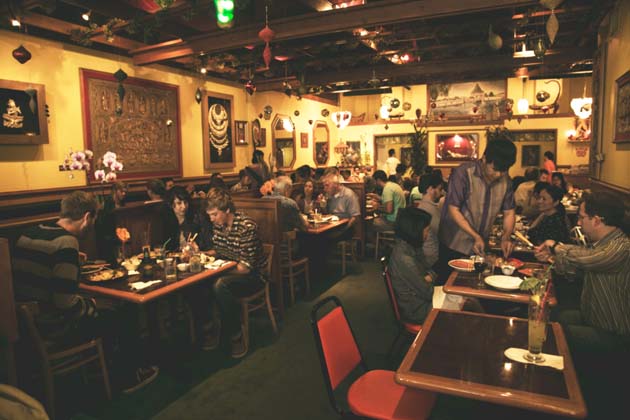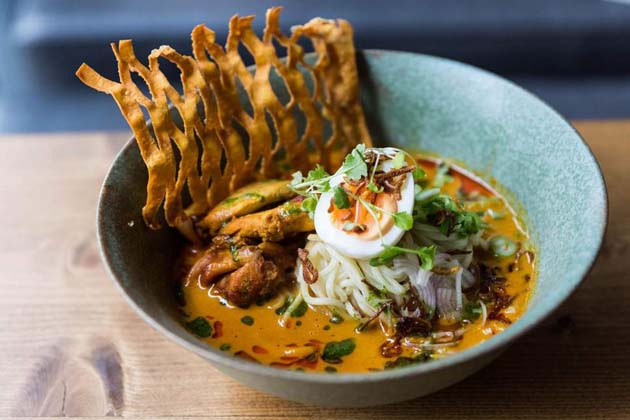Foreign visitors traveling to Myanmar will sooner or later find themselves in a restaurant or eating-place. You go there not only to fulfill a nutritional need but also to enjoy the food, perhaps with a company, in an appropriate atmosphere. At the same time, a restaurant can be a place where irritations and frustrations occur when the table, the linen, the food, the service (and the bill) is not what you expect. However, with a proper frame of mind, tolerance and sense of adventure eating here will be a pleasurable, memorable experience.
Don’t be overbearing
Some people enter a restaurant like a potentate with a full retinue, head straight to an empty table, and if directed to other demands to see the Manager. They snap their fingers at any passing waiter, want to know why the order is taking so long and complains loudly about the food. Such people with overbearing, domineering manner are the terror of restaurants. Don’t be one of them.
Don’t be loud
There is another type of person with ill manners in a restaurant. That is the person who calls the waiter with a loud voice, orders with a loud voice, and talks with a loud voice ask for the bill with a loud voice and depart still talking in a loud voice.
In a karaoke establishment or a restaurant with loud music, you may have to raise your voice in conversation to be heard. But in other quiet restaurants avoid being the one who is loud.
Beckon the waiter correctly
Don’t snap your fingers at the waiter or call out, “Boy”. Don’t put your palm up and wag the fingers; you are not beckoning, you are hauling him up for punishment. It is best to raise your hand with the forefinger up as though catching his attention. You may accompany your gesture with a half smile. This way, you don’t put him off.
Don’t prejudge the taste
Every chef adds his personal touch to even the most humdrum dish. Every country gives a local flavor to what one might assume to be a standard internationalized dish. So don’t judge the dish you are served as not being up to mother’s home-cooking or like your favorite dish at the corner restaurant in your town. Be prepared to taste different flavors and be adventurous to try new ones.
Speak slowly and clearly
Many a wrong dish has been served either because of a garbled order or misunderstanding between guest and waiter. To avoid later argument and unpleasantness, you should speak slowly and clearly. If the dishes on the menu are numbered, point to a number, repeat the number and state the order. And check to see that the waiter has got it correctly.
Know that it takes time
However efficient a kitchen, an order cannot be served immediately. Most dishes are half-prepared and so can be made quite quickly. But there may be a waiting list of orders, especially at peak time some dishes are more complicated to make. Sometimes the waiter tells you how long the dish will take. But he may feel he is discouraging you by letting you know. It is best to realize that a good dish takes time and be prepared to wait. Rest assured you are not neglected.
Paying the bill
In restaurants, you beckon the waiter and say, “Check”. This can be accompanied by a mime of the set of writing. In eating places the waiter can be called and you draw a circle with your finger to encompass the whole table. He will understand. In a teahouse, you just get up and as you go out you will pass the cashier. The charge will have been shouted out to the cashier by the waiter in charge of your table. The cashier will either tell you the amount or write it on a slip of paper. You pay and you leave.
Show appreciation
Even in a peak hour, your waiter has done his best to take personalized care of you and to meet your wishes. You can show your appreciation by leaving a small token, a word of thanks and a smile.




